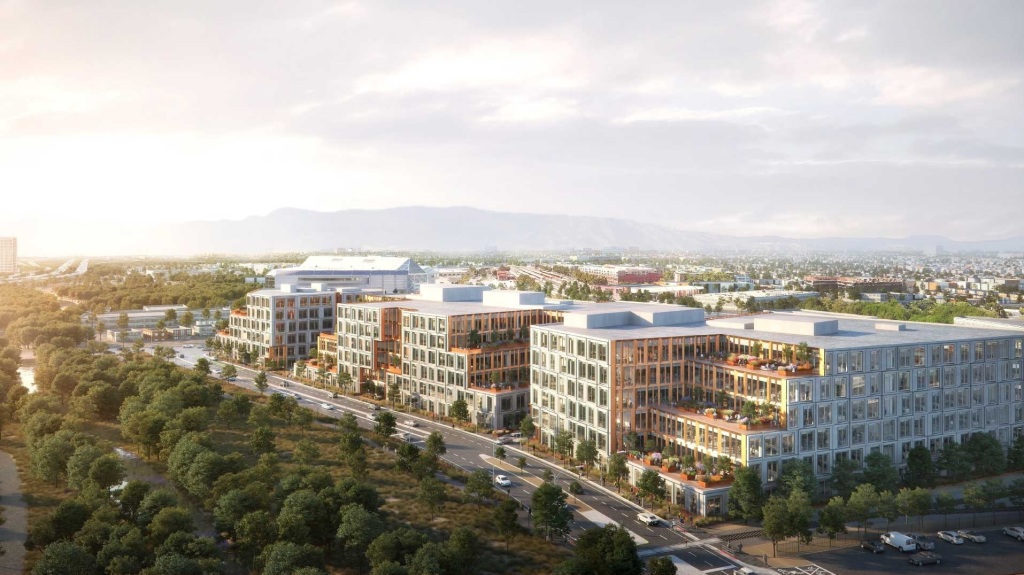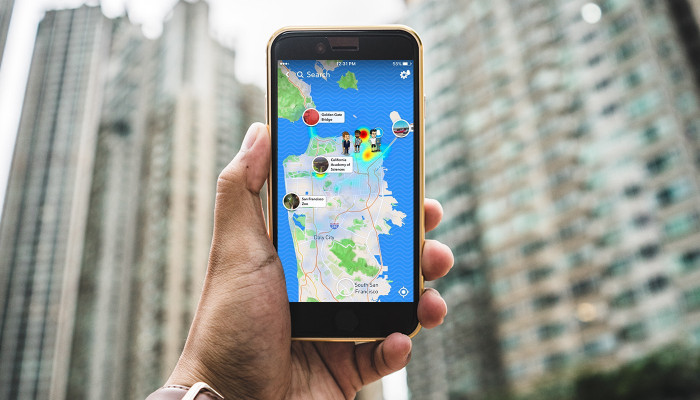SAN JOSE — A restart of a huge tech campus in downtown San Jose near the footprint of the Google transit village and the Diridon train station is being “actively” considered for 2022, a top executive with the project’s developer said Wednesday.
Platform 16 broke ground in March 2020 at the very outset of the coronavirus outbreak, but construction was soon halted as a result of the shutdown of economic activity that included wide-ranging exits of companies from offices in the Bay Area and worldwide.
Now, Boston Properties, Platform 16’s developer and principal owner of the project site at 441 W. Julian St. near Autumn Parkway, says it is eyeing a resumption of the campus, a company executive said Wednesday during a conference call to discuss the real estate firm’s quarterly financial results.
“We are actively considering when we might restart the construction of Platform 16 next to Diridon Station and the future Google development in San Jose,” Douglas Linde, president of Boston Properties, told analysts who were listening to the call.
Platform 16 is a proposed development with a striking look, featuring a series of terraces in a project that would be perched near the banks of the Guadalupe River and a short distance from Google’s Downtown West neighborhood.
Once complete, the development would total 1.1 million square feet and consist of three office buildings and a garage on a site bounded by Autumn Parkway, West Julian Street, North Autumn Street, and a railroad line.
Still, plenty of challenges loom, including a sharp rise in construction costs as well as supply-chain issues that can make it tricky to obtain building materials swiftly.
“We are in the process of re-bidding our Platform 16 base building project, which was previously budgeted in late 2019,” Linde said. “This is with an eye towards a 2022 restart.”
A base building project refers to the development of the shell of the building and not the interior improvements that are done later, typically after a tenant has signed a lease.
Boston Properties’ current thinking is to add about 5% to 6% to current construction costs for a top-flight office building such as Platform 16 for projects that might begin eight to 12 months from now, the company stated during the call.
One reason why Platform 16 is currently back on the front burner for near-term development: Tech companies are actively showing plenty of interest in big leasing requirements.
Menlo Park-based Facebook has begun to scout for 700,000 square feet in Silicon Valley while China-based ByteDance is hunting for 250,000 to 300,000 square feet, Owen Thomas, chief executive officer of Boston Properties, said during the conference call.
“I could go on,” Thomas added, indicating that even more tech companies have begun to scour Silicon Valley for office space.
Tech companies are undergoing a shift in attitude about returning to their offices after abandoning them due to the coronavirus and the associated economic uncertainties.
“Tenants are committed to being in the office at their location of choice,” Thomas said.
The prospect that Platform 16 could resume development was seen as an encouraging sign by Bob Staedler, principal executive with Silicon Valley Synergy, a land-use and planning consultancy.
“This is a bellwether sign that office develop in San Jose has a positive outlook,” Staedler said. “Boston Properties has a great sense of the market and will make a smart decision.”










